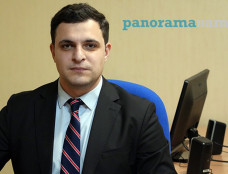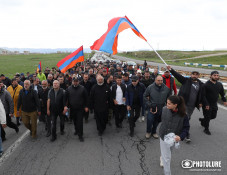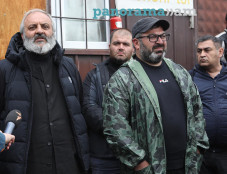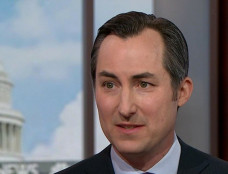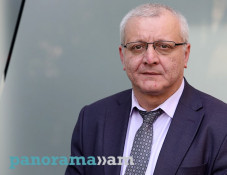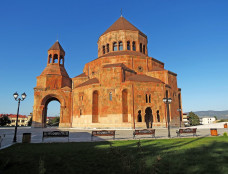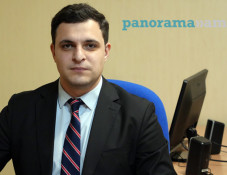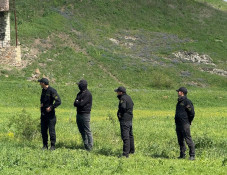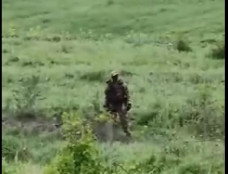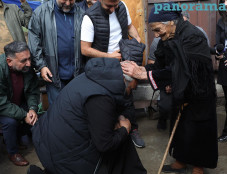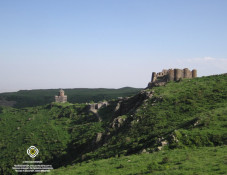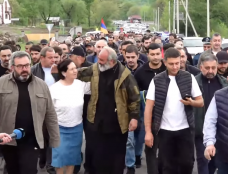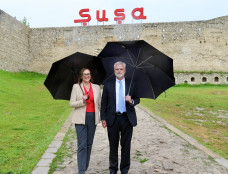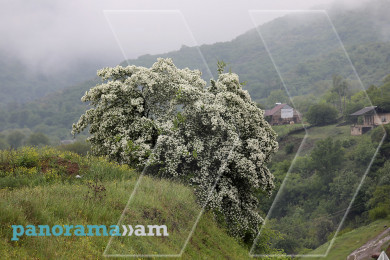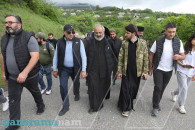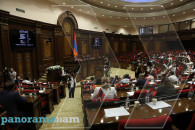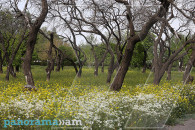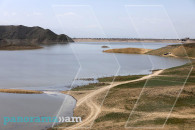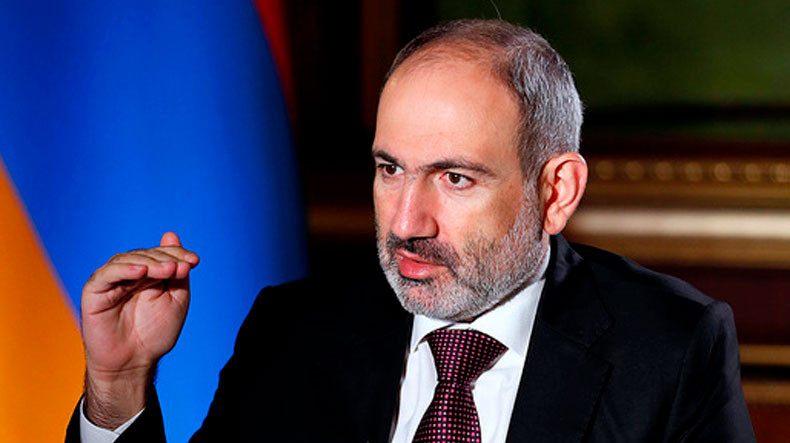
'Every day of continued war will bring frustration to Azerbaijani society,' Pashinyan tells Al Jazeera
Armenian Prime Minister Nikol Pashinyan gave an interview to Al Jazeera TV channel. Below is the English version of the interview presented by the premier's office.
Al Jazeera: Good morning. Armenian Prime Minister Nikol Pashinyan is our guest at today’s special edition. Mr. Prime Minister, welcome and thank you for talking to Al Jazeera.
Nikol Pashinyan: Thank you.
Al Jazeera: Mr. Prime Minister, could you please brief us on the official relationship between Armenia and Nagorno-Karabakh.
Nikol Pashinyan: First of all, I would like to state that Armenians have lived in Nagorno-Karabakh for several millennia. Armenians constituted over 80% of the population in the Nagorno-Karabakh Autonomous Region. I would also like to state that there is a huge Armenian cultural heritage in Nagorno-Karabakh: churches and other monuments, some dating back to the 5th century. The first Armenian school was established in Nagorno-Karabakh.
In 1988, the Armenians of Nagorno-Karabakh tried to reinstate their rights, as part of a democratization process going on in the Soviet Union. When the Soviet Union was being formed, Nagorno-Karabakh, with its 80% of Armenian population, was handed over to Soviet Azerbaijan and not to Soviet Armenia as a result of Stalin’s arbitrary decision.
When democratization began in the Soviet Union, the Armenians of Nagorno-Karabakh tried to restore their rights through political means, to reunite with the Republic of Armenia, to which the Soviet Union and Azerbaijan responded with brutal violence against the peaceful population. I am referring to the following, our relationship is with the people, the people who have lived, are now living and will live in Karabakh.
Al Jazeera: How can we describe Nagorno-Karabakh, for example, where do I go when traveling from Armenia to Karabakh?
Nikol Pashinyan: Nagorno-Karabakh declared its independence later, we call it the Republic of Nagorno-Karabakh or Artsakh, where there is an elected president, there is a parliament, and there are also state agencies. It is not considered the territory of the Republic of Armenia. The Nagorno-Karabakh Republic is a proclaimed state, which, unfortunately, has not yet received international recognition.
Al Jazeera: Mr. Prime Minister, you talked about the historical aspect. The Azerbaijanis submitted documented evidence that those lands belong to them. Talking about international law, what could you say about the UN Security Council resolution?
Nikol Pashinyan: I would like to draw your attention to the following fact: if we interpret international law the same way as Azerbaijan does, we should be able to say that Azerbaijan is part of the Soviet Union. But there is no such independent state anymore. If you can say that the Soviet Union does not exist, therefore, Azerbaijan cannot be part of the Soviet Union.
Similarly, Soviet Azerbaijan does not exist anymore for the Nagorno-Karabakh Autonomous Region, which used to be part of the now defunct Soviet Azerbaijan. As for the UN Security Council resolutions, they were adopted in a specific situation; they described a specific situation relating to the conflict between the Armenian self-defense forces of Nagorno-Karabakh, the armed forces of Azerbaijan, and its ensuing outcome. What is described in the Security Council resolution has an important context. I have already said that Azerbaijan responded to the absolutely peaceful political struggle with force, as it does today, by bombing and shelling peaceful settlements.
In order to protect those peaceful settlements from rocket fire, the Nagorno-Karabakh self-defense forces were obliged to establish a security zone.
Al Jazeera: When hostilities broke out, you said that Armenia might unilaterally recognize Nagorno-Karabakh’s independence. What can this change now?
Nikol Pashinyan: That issue has been and is on our agenda, but the main concern for us is not so much that the Republic of Armenia recognizes the independence of Nagorno-Karabakh, because the Republic of Armenia can always do that. It is very important that other members of the international community recognized it. And today we think that this issue is more urgent, considering the current situation, taking into account the humanitarian catastrophe in which Nagorno-Karabakh finds itself; taking into account the indisputable fact that Nagorno-Karabakh within Azerbaijan means Nagorno-Karabakh without Armenians. We believe that in this case, the formula of “remedial secession” should be applied, and the international community should recognize the independence of Nagorno-Karabakh.
Al Jazeera: You talked about ethnic cleansing. Azeris accuse you of changing the identity of Karabakh, destroying cemeteries and mosques, changing its name to Artsakh.
Nikol Pashinyan: No graves were destroyed. A mosque in Shushi was recently renovated in Nagorno-Karabakh with modern technologies. Mosques are being paid special attention by the Nagorno-Karabakh authorities. And if you go to Shushi, you will see a magnificent restored mosque, unless the Azerbaijanis shelled it already. Why do I say that? Because the Ghazanchetsots Church in Shushi, the Armenian Church, was precision-striked and is now in a dilapidated condition.
Al Jazeera: I have already visited Shushi and filmed the mosque. Azerbaijan accuses you of rebuilding the mosque and changing its identity, not religiously, but historically. According to Azerbaijan, it had its own historical identity.
Nikol Pashinyan: I know that the mosque was restored under the supervision of Shiite clerics and specialists. And it could not be otherwise. In other words, it was restored under the supervision of Muslim clerics, theologians, specialists, following their plans and advice.
Al Jazeera: Were there any Azerbaijanis?
Nikol Pashinyan: I repeat, all this happened under the control of specialists. Those specialists were not from Armenia or Karabakh, they were from abroad. I cannot say that there were Azerbaijanis. As far as I know - my knowledge in this area is not very big, unfortunately - it is a Shiite mosque, and Shiite clerics and experts joined our Armenian benefactors in the restoration activities.
Al Jazeera: A ceasefire has already been declared three times in Nagorno-Karabakh. Why does the ceasefire fail every time?
Nikol Pashinyan: Because Azerbaijan is violating the ceasefire. Because Azerbaijan and Turkey, in fact, have declared that they are not going to stop hostilities. If we go back to the public statements, we will see why the hostilities do not stop. Because we recorded the facts, and it is now an internationally recognized fact, for example, that Turkey transferred mercenaries from Syria to Azerbaijan to launch an attack on Nagorno-Karabakh.
And these terrorists are not transported to these regions for peace or a ceasefire. Terrorists and mercenaries are being transferred to go wage war.
Al Jazeera: The President of Azerbaijan Aliyev said that you did not present any facts that there are mercenaries in the conflict zone.
Nikol Pashinyan: In this day and age, the Internet is filled with such facts and proofs. By the way, you know that videos recorded on smartphones allow their geolocation, you can find out where it happened with certain programs. And we see that terrorists filmed themselves after committing their terrorist acts. The footage appeared on the Internet, and with geo-location we can prove and spot the place where that shooting took place.
And in general, we have presented a lot of evidence. But even before us presenting our facts, the Islamic Republic of Iran, the Russian Federation, France, and the United States officially recognized and acknowledged that mercenaries and terrorists are involved in the Nagorno-Karabakh conflict zone. I think this issue is already an internationally confirmed fact, that says it all.
Al Jazeera: After coming to power, you expressed a strong position, you said that we should work to find a solution acceptable to the people of Armenia, to the people of Nagorno-Karabakh, and to the people of Azerbaijan. Do you think it is possible to reach a solution through negotiations that will be acceptable to the people of Azerbaijan?
Nikol Pashinyan: Yes, I have proposed this. I have said that we must find a solution to the conflict of Nagorno-Karabakh that is acceptable to the people of Armenia, to the people of Karabakh and to the people of Azerbaijan. And, yes, I am the first leader involved in the negotiation process, to say that any solution to the conflict must be acceptable to the other side as well. But why didn't we go further that way? Because the President of Azerbaijan refused to adopt the same approach to the resolution . Because they based their stance on the logic that any solution to the issue should only be acceptable to the people of Azerbaijan. This is the position that has led to such a situation.
Al Jazeera: You said you were ready for painful compromises. What did you mean by that?
Nikol Pashinyan: I said two days ago (on October 26) that Armenia, yes, is ready for compromises. Compromises are always painful. But that is the whole issue, what does compromise mean? Compromise means the willingness to step back from a threshold you have set, that is, the willingness to lower the benchmark you have set. However, when Armenia accepts to lower the bar to create a mutually acceptable framework, that becomes unacceptable for Azerbaijan, and the latter demands even more.
Al Jazeera: What threshold are we talking about?
Nikol Pashinyan: This is not new, this has been the policy for many years. I can refer to the following instance: what happened in Kazan in 2011 is a good example. I have already mentioned that the Republic of Nagorno-Karabakh has declared its independence. And, in fact, it is the benchmark that Nagorno Karabakh, the Armenians of Nagorno-Karabakh and the Armenian people rely on. In 2011, the Armenian government that was in power in that time, was willing to hand over territories to Azerbaijan. And within that context, Nagorno-Karabakh was supposed to receive an "intermediate status" , so that in the future, after the return of the internally displaced people from Nagorno-Karabakh, a referendum would be held to determine the final status of Nagorno-Karabakh.
Al Jazeera: When talking about the return of the internally displaced, do you mean only from Azerbaijan or from Armenia and Azerbaijan?
Nikol Pashinyan: We are talking about the return of the internally displaced people from the Autonomous Region of Nagorno-Karabakh, and from the zone of conflict, in general. And this is a serious benchmark. After the threshold was lowered, a document was drafted, in agreement with Armenia, Azerbaijan, Russia and the OSCE Minsk Group Co-Chairs. But at the last moment, Azerbaijan rejected that document. And this shows why the conflict has not yet been resolved. Every time the Armenian side shows some flexibility, it becomes unacceptable for Azerbaijan.
Al Jazeera: in terms of Russia’s positionning: President Putin has said that he will not stand by either side. What do you have to say to that?
Nikol Pashinyan: Russia is a co-chair of the OSCE Minsk Group and a mediatior, and hence, must maintain a certain neutrality. And this is understandable.
Al Jazeera: There are appraisals in Armenia that after coming to power, your relationship with Russia, a close ally to Armenia, has weakened and that you are more in favor of the West, which has shifted the paradigms. How do you react to that accusation?
Nikol Pashinyan: You know, this is an absurd accusation, because Russia has been Armenia’s strategic ally and remains Armenia’s strategic ally. Russia is not neutral in terms of being a strategic ally of Armenia. The Russian authorities and President Putin repeatedly stated that Russia will fulfill its security-related commitments towards the Republic of Armenia, if necessary. As for the Karabakh issue, I have already said that Russia has been a co-chairing, and mediating country since the formation of the Minsk Group, and thus had an obligation to maintain neutrality. And so far his status has not changed.
Al Jazeera: What is your relationship with the West? You have not spoken to the U.S. President since the start of hostilities. Do you think that points to anything?
Nikol Pashinyan: I have had phone talks and I keep in close touch with the President of France, with the U.S. Secretary of State, with the U.S. President’s Security Advisor. In general, we are working to present the essence of the issue to the international community. And the essence of what is going on is as follows: we can say with confidence that without the provocation of Turkey this war would not have started, it would not have happened.
And again, I want to state that based on the already internationally accepted fact, Turkey has recruited mercenaries, terrorists and transferred them to the conflict zone. High-ranking Turkish military officers are involved in the war against Karabakh. I want to emphasize that this is not an accident at all. In my opinion, this is the expression of Turkey’s imperialistic policy. We see what policy Turkey is pursuing in Syria, Iraq, the Mediterranean Sea and the South Caucasus. Turkey pursues a policy of restoration of the Ottoman Empire. And I have no doubt that the expansion that is now being attempted to the Mediterranean, the South Caucasus, Syria, Iraq, the whole Arab world is viewed by Turkey as a potential subordinate of the Ottoman Empire.
I have no doubt that if the international community, including Europe and the Arab world, does not properly assess this situation and respond to it, we will see Turkey’s expansionist policy towards the south. I am glad that there are many Arab countries that accurately assess the geopolitical situation, and take the necessary political and strategic preventive measures.
Al Jazeera: Azerbaijan declares that you have lost territories. Can you get back those lands or not?
Nikol Pashinyan: Yesterday (October 27) I delivered a message, I said the following. In essence, Nagorno-Karabakh, an unrecognized state, is currently fighting against international terrorists, Azerbaijani and Turkish Air forces and Special Forces.
According to some reports, Special Forces from Pakistan are taking part in the fighting. And it is obvious that the attack sought a swift victory over Nagorno-Karabakh by means of a blitzkrieg. But the small unrecognized republic, which has withstood for a month now, is fighting against huge international powerhouses and is still holding.
And every day of continued war will bring frustration to Azerbaijan, and the Azerbaijani society. Because of what you were mentioning earlier, that the Azerbaijani authorities have fed their society with so much victorious information that they have been waiting, every day, and for a long time now, for the end of the war, and their final victory. And they are just waiting for that news.
I want to say that they will not get that news. And they will be stuck until they recognize the legitimate right of the people of Nagorno-Karabakh to self-determination, until we all make sincere efforts to reach a constructive diplomatic solution.
Al Jazeera: Regarding now the transparency of the information related to the hostilities. There are maps that show what Azerbaijan has taken under its control. How transparent are you in this matter?
Nikol Pashinyan: We have published maps, and we give our society the necessary information. Our society is aware of everything. I cannot say the same about the Azerbaijani society.
Al Jazeera: Mr. Prime Minister, thank you for the interview.
Nikol Pashinyan: Thank you.
Newsfeed
Videos





